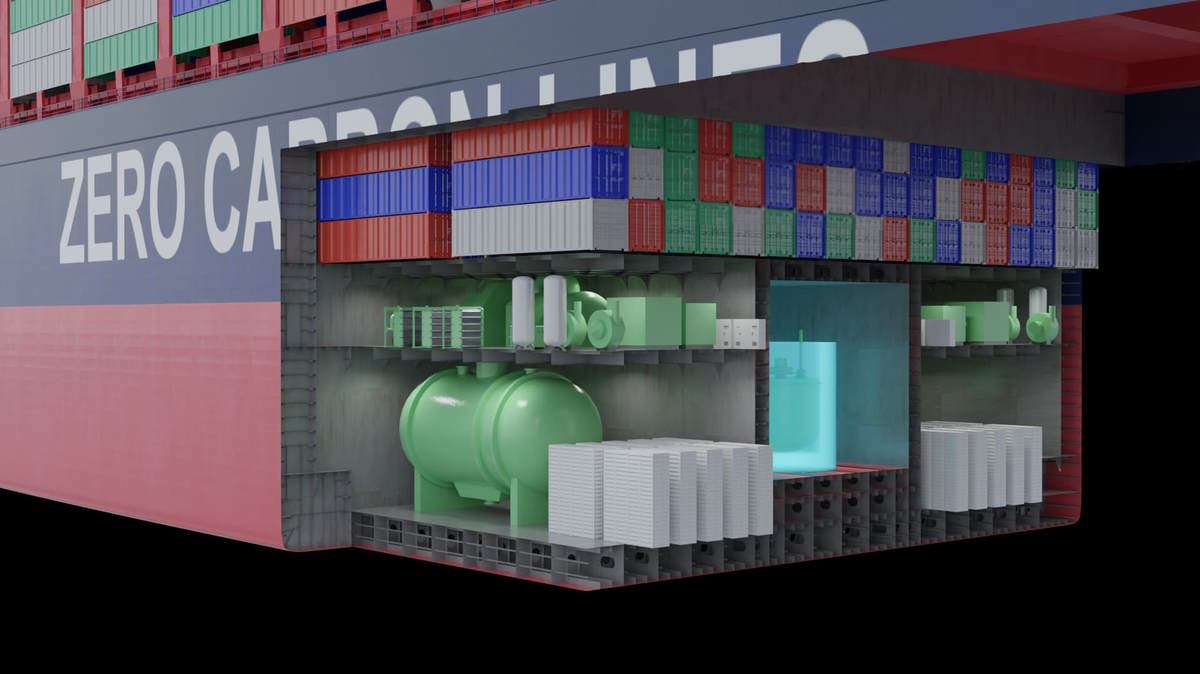Nuclear power will be key to achieve net zero in shipping by 2050 – ABS CEO
Nuclear power must be included in the future fuel mix to achieve decarbonisation goals in shipping, according to Christopher J. Wiernicki, chief executive of classification society American Bureau of Shipping (ABS).
 CONCEPT: Arrangement of nuclear reactor and supporting equipment in a ship. ABS
CONCEPT: Arrangement of nuclear reactor and supporting equipment in a ship. ABS
One of the key advantages of using nuclear is its potential for zero-carbon operations, which would eliminate compliance penalties, Wiernicki said. Current compliance costs account for the EU Emissions Trading System (EU ETS) and FuelEU Maritime regulations for voyages between EU ports and from non-EU to EU ports.
Nuclear propulsion also offers “higher power with faster transit speeds, increased cargo storage due to the elimination of fuel storage and it unlocks the potential for reverse cold ironing where the vessel powers the port,” he said.
In reverse cold ironing a ship supplies power to a port's electrical grid.
He also noted that nuclear propulsion has long-term appeal as it eliminates the need for frequent bunkering.
Wiernicki’s argument is based on the theory that refueling a nuclear-powered vessel could involve replacing uranium in the reactor, topping up the onboard reactor’s fuel or replacing a modular nuclear reactor. Since nuclear reactors usually have a long operational lifespan, the vessels will not require bunkering on a regular basis.
This perspective was previously supported by classification society Lloyd’s Register (LR) in a report published last July. However, LR pointed out that the upfront cost of fuelling a nuclear-powered ship would be significantly higher than bunkering a conventional vessel due to the high cost of uranium and regulatory constraints.
Unlike conventional marine fuels, uranium does not trade on an open market and can only be sold by licensed suppliers. Supplier operations are regulated under the Treaty on the Non-Proliferation of Nuclear Weapons (NPT) and the International Atomic Energy Agency (IAEA). Uranium purchase contracts are privately negotiated between buyers and sellers, according to Canadian uranium supplier Cameco.
It should also be noted that nuclear reactors do not operate like conventional engines and incur additional costs, including spent fuel management and disposal, according to the World Nuclear Association. For this reason, nuclear fuel refueling and traditional bunkering costs cannot be directly comparable at the moment.
The LR report suggested that instead of purchasing nuclear fuel upfront, shipowners and operators could lease the reactor and treat the lease as a one-time capital expense rather than an ongoing operating cost.
By Konica Bhatt
Please get in touch with comments or additional info to news@engine.online






